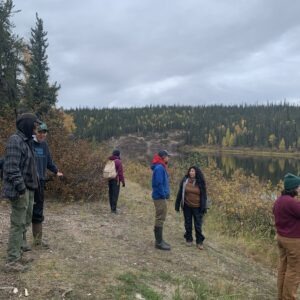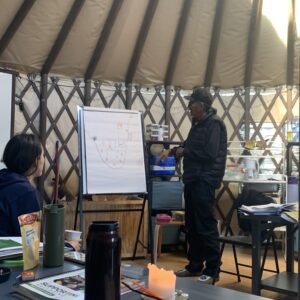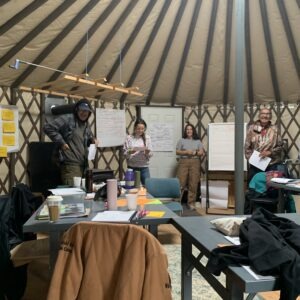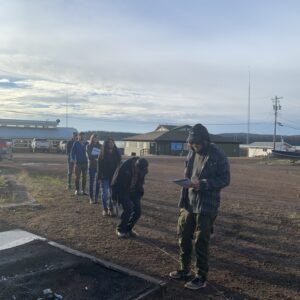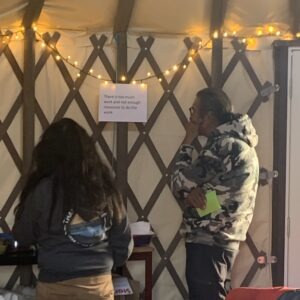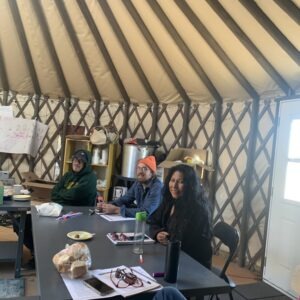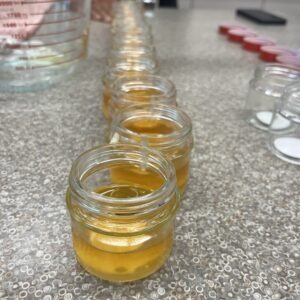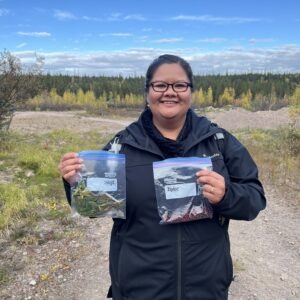Łútsël K’é Training — September 23-27, 2024
We partnered with the Łutsel K’é Dene First Nation and Thaidene Nëné to deliver our second Supporting Wellbeing training of the year. This initiative is part of our commitment to provide four free trainings each year.
The training was led by our facilitators, Ashley Okrainec and Rachel Cluderay, and included all six Supporting Wellbeing modules. It was attended by nine participants who support or deliver land-based programs in their community. Maxine Lacorne provided essential emotional support throughout the training, creating a safe space for participants to explore difficult topics.
This five day training took place at the yurt where we were warmed by the woodstove and enjoyed incredible meals—mahsi cho to Amber and Lisa for their fantastic cooking, including breakfast casserole, caribou pho, homemade tomato soup with grilled cheese sandwiches, pancakes, and much more. We spent time on the Land during the emotionally challenging modules on Intergenerational Trauma, Resilience, Suicide Intervention, and Life Promotion.
On Tuesday afternoon, we visited the new healing camp that is currently under construction, paid our respects to the Land and the Snowdrift River, and harvested cranberries, spruce gum, and other natural medicines. A highlight of our week was Thursday afternoon, when we collaborated to make medicines to take home. Juni Gahdele prepared sage and labrador tea using water from Desnethche, and shared valuable teachings on how to use these medicines and the water to care for ourselves. Additionally, Stephanie Poole guided us in making spruce salve with the spruce gum we harvested—we all went home with a jar of this soothing balm.
During the training, one participant expressed, “I feel that I learned a lot. This on-the-Land healing is what we need here.” Others noted that the workshop provided them with tools and confidence to help those in need, emphasizing the importance of self-care and recognizing early signs of distress.
The training participants are eager to apply their newfound knowledge and skills to support their community. One individual stated, “I can help out whenever the healing camp is completed. This workshop brought many ideas.”
We extend our heartfelt gratitude to the participants and everyone involved in making this training a success.
Mahsi cho!
